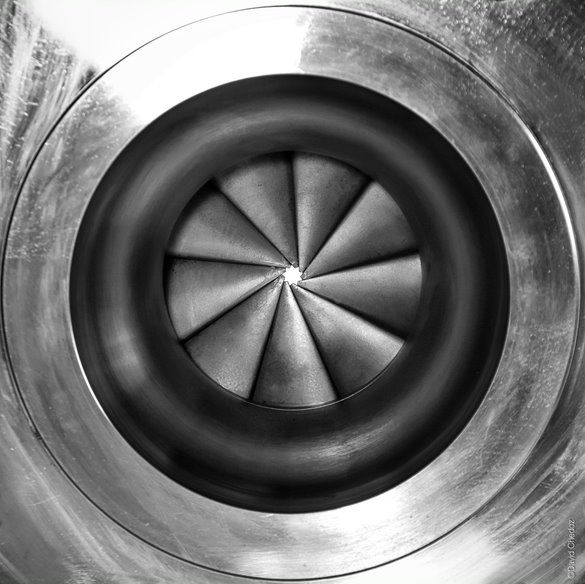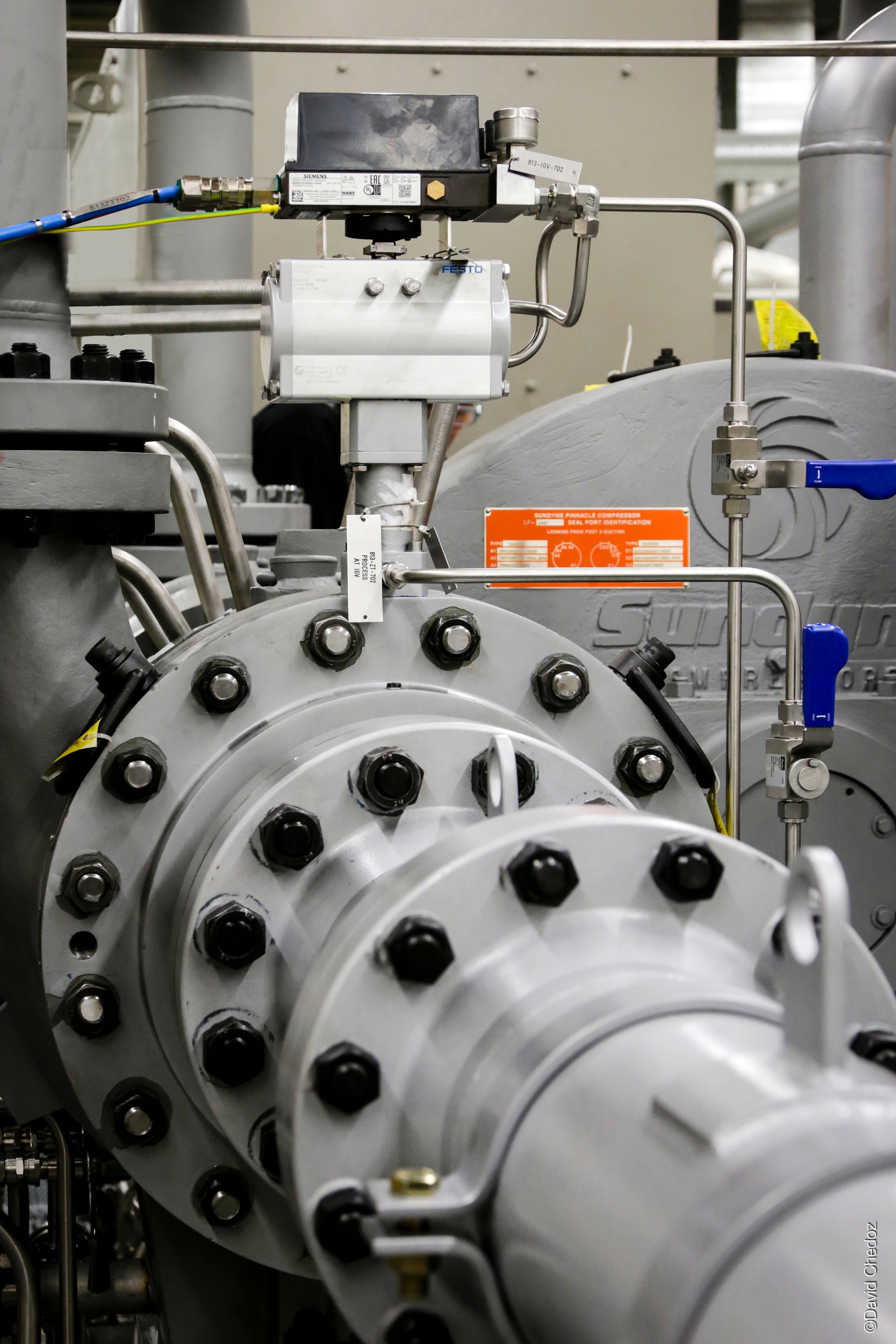Centrifugal compressor upgrade: Boosting plant efficiency by adding inlet guide vanes to aging compressors

IGV blades at the inlet of a compressor pre-swirl gas flow entering the impeller, reducing the amount of work needed from the main driver.[/caption]
The transportation industry is responsible for 70% of global oil demand. Air travel alone consumes approximately 8 million barrels per day (MBPD) of oil feedstocks. During the last few months, refineries around the globe have operated at significantly reduced capacities. As the transportation industry (and the world at large) bounces back, process conditions in refineries will change yet again. These dynamics are prompting plant operators to evaluate compressors and their control systems to ensure they operate at peak efficiency.
Centrifugal compressors used in refineries can last for 30 years or longer. Re-vamps, re-rates and upgrades to compressor components such as motors, impellers, seals, bearings and control systems extend operating life. They can also enhance performance characteristics to meet new operating requirements.
An upgrade that can boost efficiency and help refineries lower energy costs is the addition of Inlet Guide Vanes (IGVs). IGVs are a series of blades arranged at the inlet of a centrifugal compressor. Pneumatically driven IGVs pre-swirl the gas flow entering the impeller. As a result, turndown is increased while reducing the amount of work needed from the main driver.

IGVs retrofitted onto an existing Sundyne multi-stage compressor.[/caption]
IGVs are especially valuable when process conditions change. When plants operate at lower capacities, they move less gas through their compressors. This alters the velocity vectors of the gas passing through the impeller of the compressors. Impellers have fixed blade angles; any change in the gas speed vector relative to the impeller blade speed vector can trigger internal stalls and begin surge conditions. An anti-surge system will protect the unit. However, opening the anti-surge valve boosts electrical or water consumption, as well as energy costs.
IGVs help to smooth out surge conditions. During turndown, the compressor control system rotates the IGV to pre-swirl the gas and adjusts the flow to fit the fixed impeller inlet blade angle. Adjustment of the internal geometry keeps the compressor within its best operating range and lowers the surge threshold. Like the wing of an airplane, each vane is designed with an airfoil cross-section. This minimizes aerodynamic losses in the full open position (vanes positioned parallel to the rotational axis). The inlet guide vanes can modulate from fully opened to fully closed positions to provide a variable degree of pre-swirl.
IGVs have long been considered a requirement for high-flow applications such as reactor feeds, gas boosting for power generation, or overhead boost in gas treatments for LNG applications. They are now standard on new equipment. But given the 20- to 30-year lifespan of centrifugal compressors, there are thousands of machines running in refineries that could implement this upgrade.
Such installations are straightforward: an IGV assembly replaces the inlet flanges, using the same bolting and interface. It does not require disconnection of any piping.
Refineries in the U.S., France, Singapore and Kazakhstan recently added IGVs to their compressors. As part of the process, each plant audited its operating conditions and compared past trends to current requirements. They made standard adjustments to boost efficiency and retrofit capacity. Additionally, they performed basic maintenance on the bearings and seals. The combination of regular maintenance and the upgrade enabled each plant to enhance turndown by up to 30% and achieve an average of 10% power savings for less than 7% of the cost of a new machine. This was accomplished in a few days during a standard turnaround without the need for hot work permits, welding or concrete work, or crane operation. In addition to boosting efficiency, IGV upgrades minimize stress on the entire system, which helps to extend the mean time between maintenance intervals. ■
By Donald de Regnier
Donald de Regnier III is Aftermarket Product Manager at Sundyne, a manufacturer of compressors since 1965 with thousands of deployments in refineries and petrochemical plants. Sundyne’s aftermarket services group can retrofit IGVs onto existing Sundyne multi-stage compressors. For more information, please visit www.sundyne.com or email Donald.deRegnier@sundyne.com.

Newsletter
Power your knowledge with the latest in turbine technology, engineering advances, and energy solutions—subscribe to Turbomachinery International today.